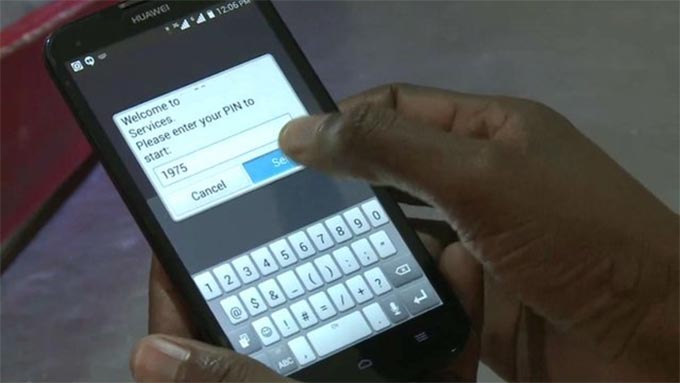EDITORIAL COMMENT : Inflation battle: Everyone must play ball

Zimbabwe’s latest wave of price increases was unexpected considering the economic fundamentals and the stability that had been growing in the economy, but appears to have occurred because of four factors that each need to be tackled.
Inflation is normally, in the textbooks, either cost-push or demand-pull. Zimbabwe, in effect, has both operating. The actual rises of prices for stuff on shop shelves is just about all cost-push and has been since the start of the economic reforms.
The rising cost of foreign currency has driven up the cost of imported products, services and raw materials and so driven up the price in local currency of the final products at retail levels.
Added to the rising cost of imports has been rises in purely local costs, such as salaries and wages, as respectable employers try to cushion their staff or have to absorb the rising costs from others who are doing just that.
This was expected and since money supply is growing very slowly, thanks to tight and prudent management of the Government’s finances, would soon burn out.
However, there is demand-pull inflation, that is too much money chasing too few goods. The “goods” in this case being US dollars, or more precisely and more importantly, US dollars available for purchase. It might strike some as odd to define foreign currency as a commodity, but in the present Zimbabwean context it is.
The main problem here is that those with US dollars, either net exporters with retained earnings in nostro accounts or recipients of Diaspora remittances in similar accounts or bank notes under the mattress, are not in a hurry to sell these foreign dollars, preferring to keep their spare cash in the original foreign currency until they have to pay bills or make purchases inside Zimbabwe.
So, even with just normal commercial requirements, there is significantly more pressure than suggested by the balance of payments accounts.
Whether you call this hoarding or prudence depends on which side of the door you are on, but even those who would rather have all foreign inflows converted to local dollars soon after arrival will not blame those holding back too much. They might well do the same if they were in that position.
So, Zimbabwe suffers both types of inflationary pressure, and this makes life hard for those managing the economy since many textbook solutions attack only one.
The third factor is a direct result of the two inflationary pressures, the desire of those who are not net recipients of foreign currency to preserve value for their spare cash.
In a normal economy, people who have surplus cash also seek ways of preserving value and making it grow.
So, they save in interest bearing accounts or bonds; they buy equities, which in the long run normally preserve value, while providing a small dividend income; or they invest in things like property.
In Zimbabwe, too many people buy foreign currency. It is simpler than buying shares or property, can be done for small sums as well as large, and can be liquidated in minutes if there is a sudden need for local dollars.
So that puts pressure on the black market.
Many businesses that are net importers of raw materials act in the same way, putting as much of their cash flow as possible into buying stocks in advance, so putting pressure on the interbank market and even dipping into the black market, often through some arrangement with a net exporter.
What matters is what price these buyers are prepared to pay and that, largely, depends on how they see the future.
Unfortunately, many think that things will get worse, or they want to at least hedge against that risk. And even if they think that exchange rates are going to slip slowly, they might still reckon that they cannot lose so long as they hold the foreign currency or stocks they are buying for six months.
So, at times we have people prepared to pay almost anything for US dollars.
And when enough are doing this we have those bubbles that we have already seen in the black market.
The first bubble was burst by ending the multi-currency regime.
The second was burst by freezing temporarily a handful of bank accounts that had been pinpointed as the source of the RTGS dollars being used to buy US dollars at almost any price, a drastic move and one that may well be argued in courts at some stage, but one that worked.
The very small number of accounts that had to be frozen to burst the black-market bubble highlights the fourth factor and one that is not often considered in the battle for stability.
Inflation moves wealth from the poor to the rich.
This, combined with the third factor of people with cash wanting to buy US dollars, causes an additional pressure.
The ordinary person in an inflationary environment rarely has surplus cash. And a civil servant on $1 000 a month does have $100 spare, it is not going to be spent on buying a few US$1 notes; rather that ordinary person will probably buy a few groceries in advance.
But few rich people, who, thanks to inflation, now see the total disposable income concentrated in their few hands, might well climb into the black market.
And that puts up the exchange rates, which puts up costs, which puts up prices. So we have an undesired feedback. The battle is being fought on several fronts. Legal instruments are giving the monetary authorities more power to intervene earlier.
Zimbabwe will reach normality at some stage, simply because of the sound fundamentals led by a primary Budget surplus.
But the journey could have been a lot more pleasant, and the economy would have been in far better shape, if a lot more people had simply accepted that things were being fixed.
Fear and greed are a foul combination, even when it is fear of the many and greed of the few, but the combination creates self-fulfilling prophecies.
We now need to work on expectations of normality, even if the authorities have to be a lot tougher to get the reluctant to see the light.










Comments